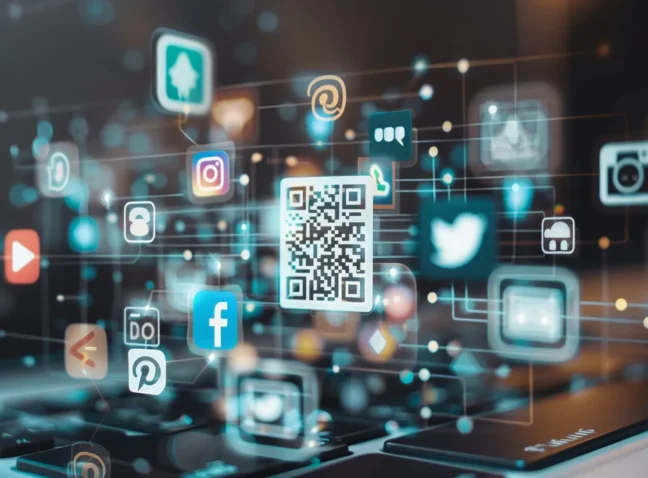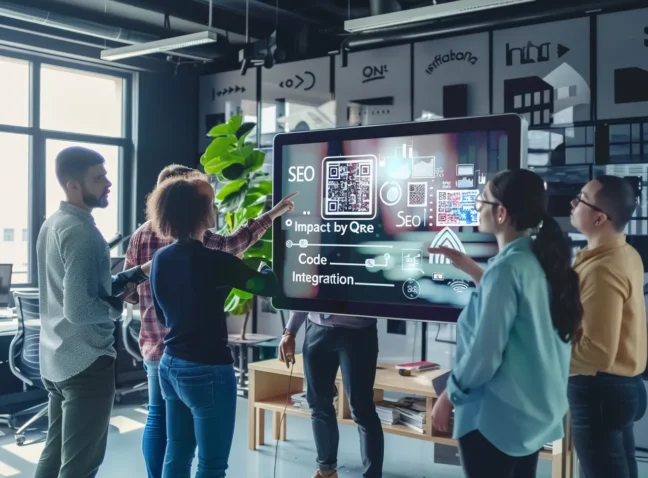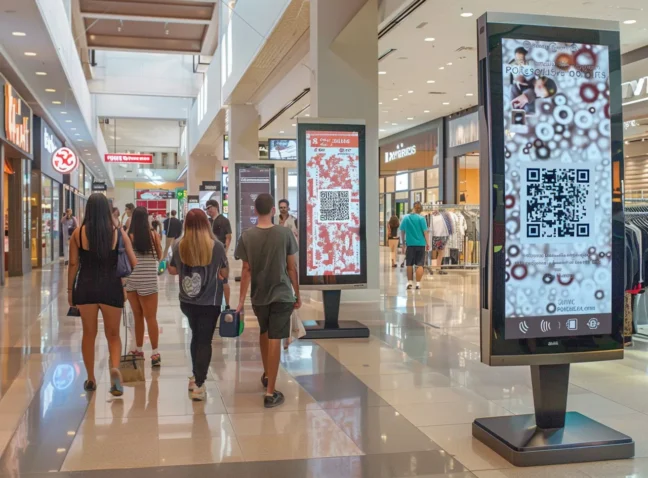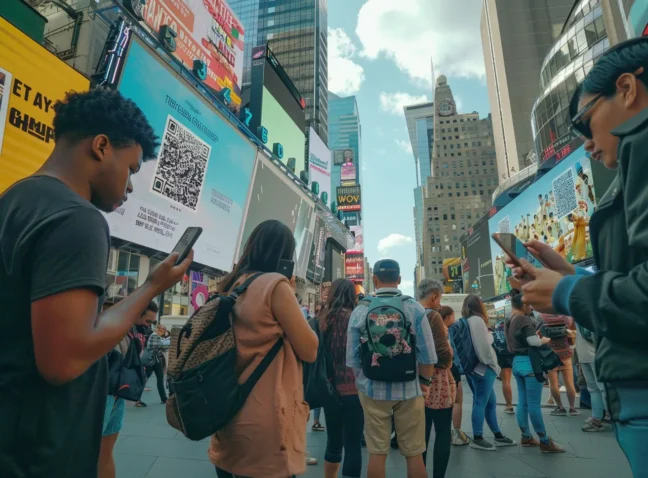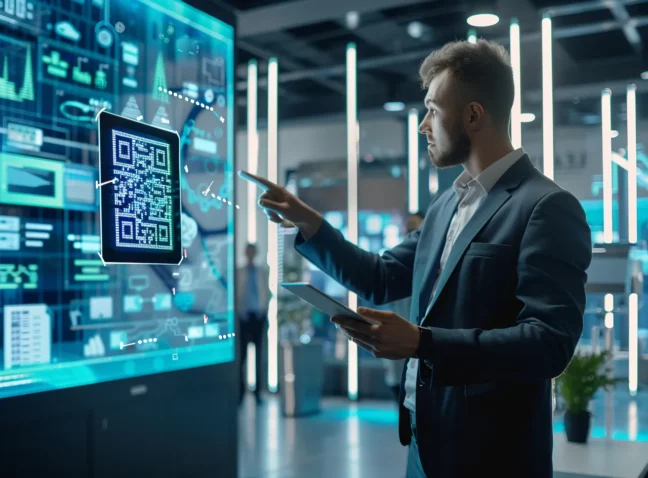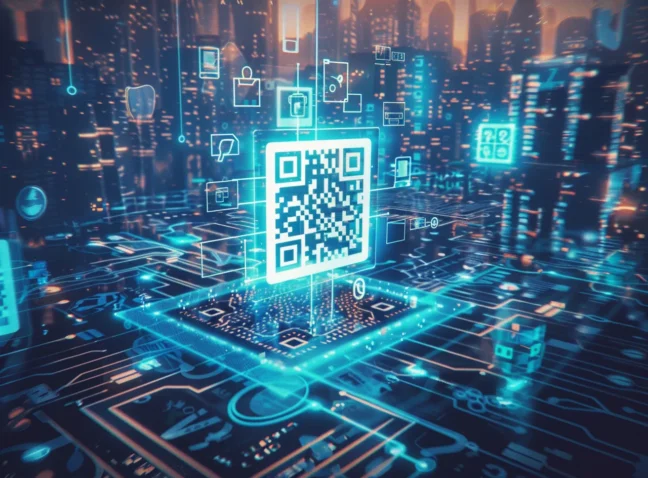Integrating technology into the messy world of waste management can lead to a cleaner world. With QR codes for waste management, multiple processes can be eased, especially when it comes to waste sorting in recycling initiatives and in terms of waste tracking for its transportation.
QR codes for waste management shouldn’t be overlooked. Especially when there’s a push for more green initiatives and to reduce the amount of land being used for landfills. And MyQRCode is here to help guide you through QR code utilization in waste management, and why it’s helping to improve practices across the board. Let’s jump in.
Transform Waste Management with QR Codes: Here’s Why
Environmental sustainability and eco-friendly practices are more important now than ever. Governments around the world are introducing better recycling practices to reduce the use of landfills which can be incredibly damaging to the environment. With proper waste management, companies can sort through waste effectively, but there’s a slight problem; waste management is a notoriously tedious and costly practice that can take a long time.
QR codes for waste management could be a solution to that issue, however. They can be implemented in a number of different ways. For instance, QR codes can be placed on recycling containers to allow users to scan and find proper recycling instructions for materials like plastic, metals, and glass. This can be especially beneficial, as around 30% of US recyclers don’t know who they should contact with questions on the recycling process. With waste management QR codes, companies can answer user questions effectively, removing the need to contact recycling representatives.

QR Codes for Waste Management: Transforming Sustainable Solutions
There’s a lot that QR codes for waste management can do provide more sustainable solutions for both users and waste management companies. For instance, waste management companies can implement QR code systems to sort and identify specific types of waste, which could help reduce the amount of busywork involved in the waste sorting process.
This is somewhere that CPG (Consumer Packaged Goods) companies can help, too. By implementing QR codes for proper plastic usage, companies can provide buyers with proper recycling instructions digitally.
Considering that there can be a confusion on the types of plastics which are acceptable to recycle, For instance, around 61% of people in the US believe that they can recycle flexible plastics like plastic bags and packaging, which is incorrect. With proper QR code implementation, these kinds of issues can be addressed, reducing the amount of un-recyclable waste brought to sorting plants.
Pros of QR Codes for Waste Management: Powerful Solutions
Leveraging QR codes in rubbish management presents an innovative approach to tackle the ongoing challenges of waste disposal and recycling. Waste management is often incredibly time-consuming and tedious for the businesses that handle it. So, the integration of technology like QR codes can help reduce some of the hurdles associated with the industry in multiple ways, as seen below:
- QR codes facilitate efficient waste sorting, leading to a potential 30% reduction in landfill waste. (GreenBiz 2023)
- Rates of recycling may increase, especially as knowledge on good recycling practices is much easier to access for users.
- This also has an impact on sorting accuracy, as there will be less non-recyclable items entering waste centers
- Around 27 million scans of QR codes took place in the first three months of 2024, showing the increasing ubiquity of QR codes. Including them in waste management procedures helps recycling and waste management companies impart knowledge on their users much more easily.
- QR code integration in waste management infrastructure has resulted in a 40% decrease in operational costs for waste collection and processing. (Waste Dive 2022).
QR Codes for Trash Collection: A Closer Look at Drawbacks
Many of the drawbacks associated with QR codes in waste management results from their rates of adoption. For QR codes to be effective in improving recycling and eco-friendly practices, their use has to be widespread throughout the industry. It’s not enough for just one or two waste management companies to implement QR codes to streamline their practices, it has to be implemented across the board.
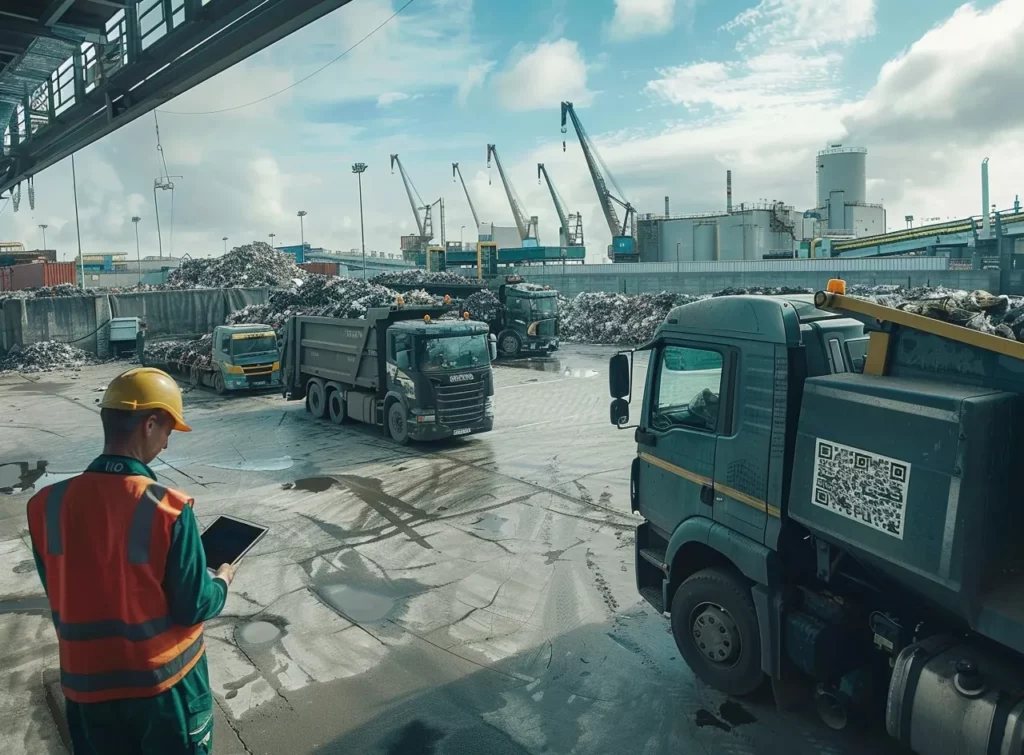
QR Codes for Efficient City Waste Management: Leading Brands Integration
We’ve mentioned some of the downsides previously in the article, but now we want to move onto how QR codes have revolutionized waste management practices for both businesses and cities across the world.
Each of the examples below provide a tangible example of how QR codes have benefited real-world locations and businesses in their initiatives, because they’ve been proactive in their implementation. Take a look:
- In Tokyo, Japan, 70% of residents now utilize QR codes for sorting waste, significantly minimizing landfill waste. (Nikkei Asia, 2023)
- Waste Management Inc. in the United States reports a 35% surge in recycling efficiency by adopting QR code systems. (Forbes, 2023)
- Coca-Cola’s “Recycle with Coke” initiative has sparked a 25% increase in plastic bottle recycling in metropolises like London and New York, thanks to QR codes on packaging. (CNBC, 2023)
- McDonald’s partnership with Singaporean authorities has led to a 40% reduction in food waste through QR code-enabled supply chain optimizations. (Bloomberg, 2023)
- Seoul, South Korea, has halved illegal dumping incidents by implementing QR code-monitored waste bins, enhancing city cleanliness and compliance. (Reuters, 2023)
These groundbreaking strides underscore the transformative potential of QR code technology in making waste management more efficient, engaging, and environmentally friendly. As cities and corporations worldwide adopt this approach, the dream of a cleaner, greener planet becomes an ever-closer reality.
QR code generator for Waste Management
QR codes for waste management come with a lot of benefits. But, for them to be truly effective, they need to be adopted widely throughout the industry, in order to improve recycling and waste segregation practices. Once those hurdles have been surpassed, we can look forward to greener practices, and more eco-friendly solutions.
Want to make dealing with waste less of a headache? Try out our QR Code Generator. Our platform allows you to generate limitless QR codes, with unlimited scans. Plus, you can design your QR codes in any way that you like, tweaking the colors, shape of the QR code, and even add logos and borders for that extra hint of personalization. Give it a try, and see how QR codes can transform your waste management practices!
